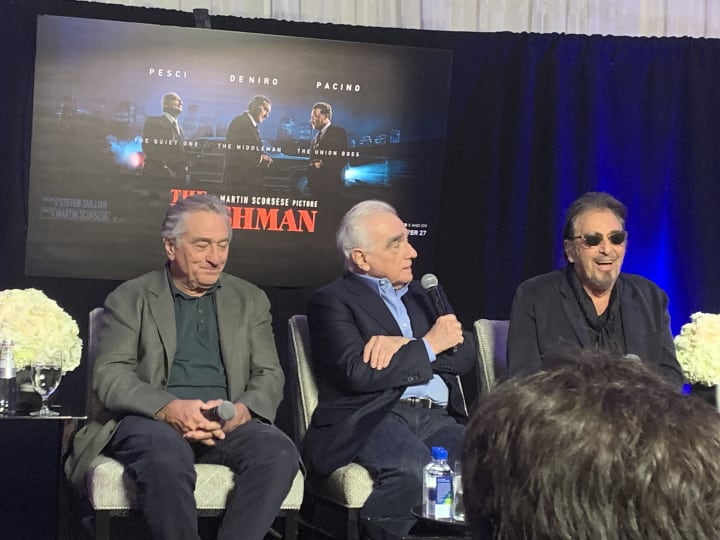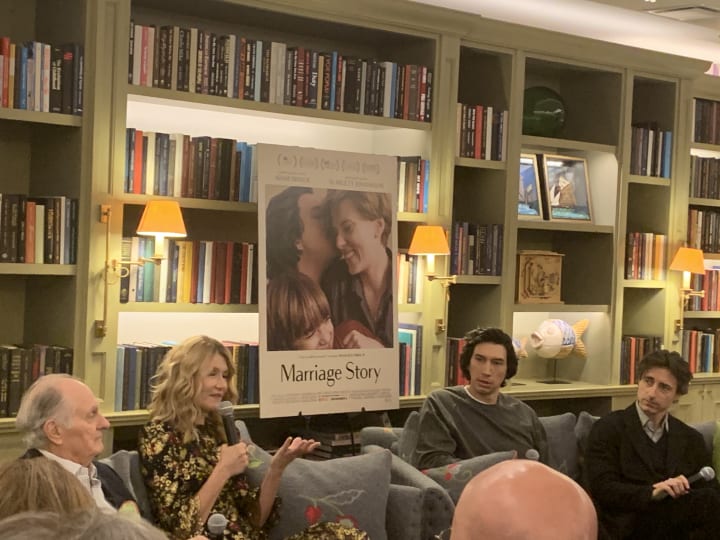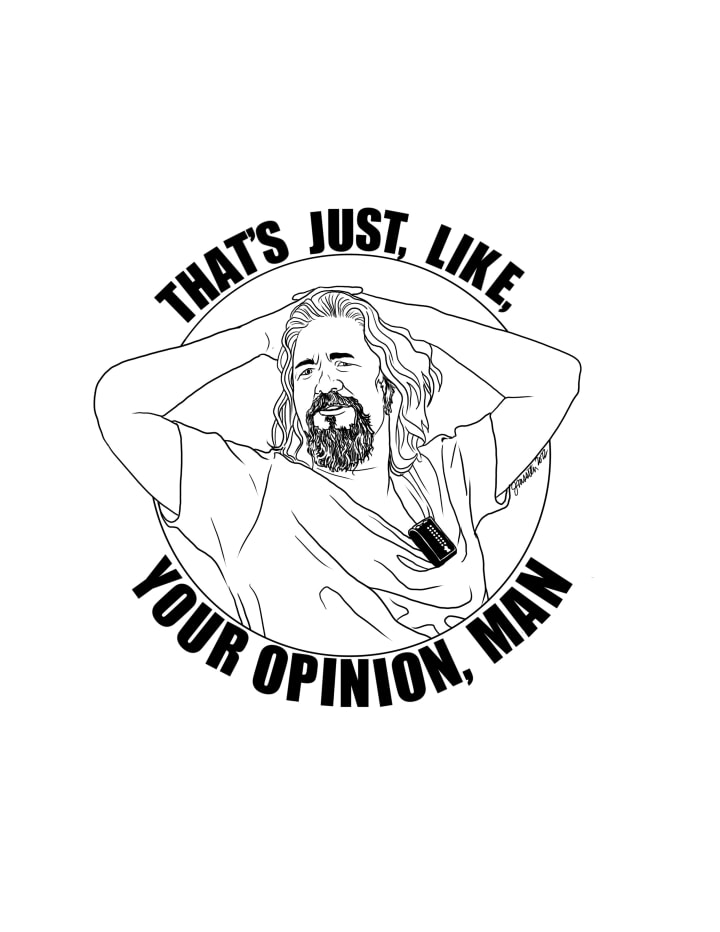Embracing the Future of Film Criticism
New voices, new platforms, new critics are shaping the future of film criticism and I am here for it.

The day I tell a young person that their opinion doesn't matter and that they are an influencer and not a critic, is the day I need to get out of the business of film criticism. Recently, there has been a rising tide of discourse in critical circles where old guard critics complain about the young whippersnappers on Instagram and TikTok who are usurping the traditional space of entertainment journalists and professional film critics. The gripes have some validity in the idea that some who have cultivated a following on social media use that influence to peddle movies while not revealing that their influence peddling is based on the price of being given access to celebrities and the clout that comes with attending junkets and premieres.
There is something despicable about not sharing the fact that you are essentially being paid for your opinion via access to celebrities. That said, let's not act like this is something new. For years, the entertainment journalism realm has been populated by many real, genuine reporters doing their job and a group of blow-dried, blowhards, whose livelihood was derived from being given access to celebrities that they would fawn over and give free reign to sell their movies unchallenged by questions regarding their movies. 'Junket Whores' or the more kind and less problematic label of 'Junketeers' have plagued the realm of film journalism since film promotion became a thing.
Wherever there was a marketer selling a movie, there was a 'journalist' willing to offer a vast platform in exchange for the relationship, real or fabricated, with a celebrity. I know many fellow 'film critics' or 'film journalists' whose walls are filled with signed photos of them with celebrities. There is nothing wrong with being a critic and a fan but there is a line that can be crossed when you become friendly with actors or filmmakers and then have to assess their work. The price critics pay for access can, at times, be their ability to objectively assess the work in front of them.
Myself, I love doing interviews with directors. This presents an ethical question, how can I be critical and have an effective, honest conversation with a filmmaker? I've drawn a particular, personal, ethical line. I will only interview a director after I have seen and liked their movie. On two occasions I've been given access to something that could be considered ethically questionable. Netflix has flown me out to a pair of Hollywood events, one for The Irishman and one for Marriage Story. Each time I was able to see the movie and then meet the stars and filmmakers. I ended up not writing about The Irishman because of the experience of being given the privilege of meeting Martin Scorsese, Robert DeNiro, and Al Pacino. I legitimately felt that I could not be objective. And I fell asleep during the movie.

I did end up writing about Marriage Story, twice, but that was only because I saw the movie first and absolutely loved it and then, I was able to have a genuine moment with the actors and director Noah Baumbach afterward regarding my enthusiasm for the movie. When I love a movie, I want to tell the filmmakers and film criticism has offered me that chance a few times. But, as I said, there is a line there that when crossed it can affect your personal credibility. Did I like Marriage Story more because Netflix put me up in a hotel in New York City? It certainly didn't hurt my feelings. But I do believe that I shared honest opinions on that movie, I loved it and I would have loved it the same if I had not been gifted a trip to New York City just to see it.
That's my opinion anyway. I've gotten away from what I intended for this article. My point is that this fight brewing between influencers and supposed real film critics is a very silly and needless bit of gatekeeping. It's gatekeeping born of insecurity and fear. Influencers are willing to do for free what many entertainment reporters have been doing for years, using access to celebrities to leverage a career. Before social media, reporters could get assigned to the Hollywood/entertainment/movie beat. They could leverage their position by gaining access to celebrities and use that to build clout and maintain their job.

Today, however, influencers on social media have created their own platforms, with no need for the backing of a newspaper or television station. They've built followings online with their personality and leveraged that into access to celebrities. Companies can pay influencers directly to advertise for their movies and the influencers, not being journalists, see no need to disclose the fact that when they do an Instagram live with a movie star, they've been paid either in financial terms or in terms of access and perhaps a gift bag.
Entertainment Journalists had been doing this under the table and behind the scenes for years and failed to see the sea change coming as social media pulled more and more audiences away from traditional media outlets. It's no wonder then that many entertainment writers are eager to defend their turf by attacking influencers. Where we go wrong in this however is painting everyone with a social media platform with the same brush, as if not being with a traditional media outlet, means that these cannot possibly be people with serious and worthy opinions.
A strong example of the kind of needless gatekeeping comes in the form of a TikTok critic named JStoobs. For me, Stoobs is awesome. She is a thoughtful, thorough and entertaining voice in modern criticism. She bristles at the idea of being called a 'critic' but I feel she's just as insightful and unique as anyone who currently calls themselves a critic. She's written off by some simply because she's on TikTok, a platform that is often dismissed as a playground but is, in reality, a place where a great deal of intelligent, thoughtful, discourse is being had on everything from politics to childcare, to movies and TV.
JStoobs covers movies and TV as well as internet culture. She's charismatic and very astute and her criticisms are as good or better than any tradition film critic working today. Gatekeeping people like JStoobs out of the industry of criticism is just plain silly. For one, she doesn't appear interested in being part of the club. Secondly, she's brilliantly talented and a forward thinking voice that modern criticism should be helping to cultivate rather than cutting out.
The same could be said of many modern YouTubers. One I would like to highlight is Amanda the Jedi. Amanda is a brilliant new critical voice in the world of television and film. She's brilliant, funny, thoughtful and entertaining. Her YouTube channel is a consistent source of some of the best film and television criticism going today. There are those however, who would gatekeep her, says she's not a critic because she does brand deals and is 'just a YouTuber.' These people do not watch Amanda's videos. If they had actually watched them, they would know that Amanda has been putting out some of the most consistent, fair, thorough and engaging criticism today. This is a voice that needs to be cultivated by older critics and brought forward to show young audiences how to engage with modern media.
Criticism is changing, the world of film criticism is now far more than 2000 word essays on The French New Wave. It's no longer 2 minutes on a local television station, it's YouTube essays, it's 3 minute TikTok breakdowns of themes and thoughtful discourse on where a movie or TV show sits in modern culture. It's also no longer limited to the new release. Some of the best criticism happening today is coming from non-traditional reviews of older classic films or bad movies. Mista G.G, for one, has found a terrific niche delivering funny, critical takes on horror movies from the past 10 to 20 years. That's not all of what he does, but it's a good sampling of his work.
Jenny Nicholson is not a film critic but, when she turns her critical eye toward the movies she delivers some of the most exciting film criticism that I have ever seen. She reviewed the horror movie Escape from Tomorrow and gave it such a thorough, intelligent, and funny roasting that it's basically THE definitive take on that movie. She did incredible work deconstructing The Joker, The Greatest Showman, and most recently, Dear Evan Hansen where she delivered a devastating deconstruction of that films failings. Her diverse interests give Jenny one of the most unique voices in criticism and she's not someone who would call herself a critic.
I could go on for a while citing YouTubers who are providing far better movie criticism than many supposed professional film critics. Chris Stuckmann, Allison Pregler, Phelan Porteous, Danny Gonzalez, Drew Gooden, Kurtis Conner, Nick Diramio, none of whom are traditional film critics but who've each done remarkable work when they've turned a critical eye on a movie. It's mostly work on bad movies and there is a definite shortage of positive criticism on YouTube, but that doesn't change the fact that this diversity of voices is teaching a new generation how to critically deconstruct film and that's not a bad thing. Rather than shun or gatekeep these voices, we should be embracing them. Welcome these influencers and have a dialogue with them about the future of how we criticize media.

Too much time is wasted fighting needless battles. There is room for many, many more voices in criticism. Professional film critics, like myself, who've worked for years to cultivate a vast knowledge of film and found success in various outlets via radio or television, still have a role to play, we can still be a big part of this conversation. But we are only making fools of ourselves when we try to tell people who is or is not a critic or what is or is not valid film or television criticism. This gatekeeping comes from a place of defensiveness and insecurity as jobs and money in our industry are fading away and, frankly, a lot of people won't shed a tear for the loss of their local critic.
The worst thing we can do is fight the future rather than embrace it. Film Critics should have been the first to embrace new media. We should have jumped at the chance to embrace YouTube, TikTok, Facebook, and Instagram as places not only to promote our work but as a genuine platform for our work. Our failure to embrace these new mediums and clinging to the model of newspapers and local television, is a grave failing on our part. Now, members of our profession are lashing out to try and protect what little ground is left beneath their feet. It's not a battle worth fighting. We need to evolve, adapt, and embrace the future. That's not to say we should stop what we are doing but we need to recognize that ours is no longer the only voice. If you want to remain relevant, don't attack young critics, meet them, embrace them, converse with them.

You can't fight this kind of change. It's like trying to turn back a tsunami by arguing with it. There is no need to fight the future. My advice to fellow critics, absorb more criticism. Follow new critics. Embrace new places for your content. Reach out to the new young generation of voices talking and criticizing movies and television. Engage the discussion about ethics from a learning perspective and not an attacking perspective. I dismiss the notion of fighting against influencers. Junketeers are no different than the people who are trading access to celebrities for clout on Instagram. It's the same thing. Star-F****** is another problematic terminology that has been used over the years in this conversation and that's been going on since junkets or media tours to promote movies, became an industry norm. Let's get off of our high horses here.

There is a bright future for film criticism. There are new and vast places for people to engage in critical discourse about movies and television. Some will be deeply intellectual and knowledgeable and some will merely be entertaining or odd. There is nothing wrong with this. Diversity in film criticism has been lacking for decades. The failure to cultivate and embrace new voices while we defend our declining turf has cost film criticism dearly.
Find my archive of more than 20 years and nearly 2000 movie reviews at SeanattheMovies.blogspot.com. Find my modern review archive on my Vocal Profile, linked here. Follow me on Twitter at PodcastSean. Follow the archive blog on Twitter at SeanattheMovies. Listen to me talk about movies on the Everyone's a Critic movie Review Podcast. If you've enjoyed what you have read, consider subscribing to my writing on Vocal. If you'd like to support my writing, you can do so by making a monthly pledge or by leaving a one time tip. Thanks!
About the Creator
Sean Patrick
Hello, my name is Sean Patrick He/Him, and I am a film critic and podcast host for the I Hate Critics Movie Review Podcast I am a voting member of the Critics Choice Association, the group behind the annual Critics Choice Awards.







Comments (5)
This is a very insightful and thought-provoking article on the future of film criticism. I agree with the author that film critics need to embrace new technologies and platforms to reach a wider and more diverse audience. I also appreciate the author's recognition of the role of film criticism in shaping the cultural discourse and influencing the film industry. One example of how film criticism can have a positive impact is the case of Keanu Reeves and Alexandra Grant (https://vocal.media/geeks/keanu-reeves-and-alexandra-grant). The couple, who are both artists and collaborators, have received a lot of media attention and public support for their relationship, which challenges the conventional norms of Hollywood romance. Their story shows how film critics can celebrate and promote diversity, creativity, and authenticity in the film world. I hope that film critics will continue to evolve and adapt to the changing times, and that they will use their voice and influence to foster a more inclusive and vibrant film culture.
Great good work
Great piece! Good work!
Like everything else related to media, criticism will have to change, and we all need to be optimistic. I teach a media course in January, and I think that I will be sharing this piece during the course (a lot that my students need to know). Thank you for this. Quite a few links that I am going to explore soon... ;)
A truly interesting article and insight into your world! Thanks Sean ✨👌🎉🕊️